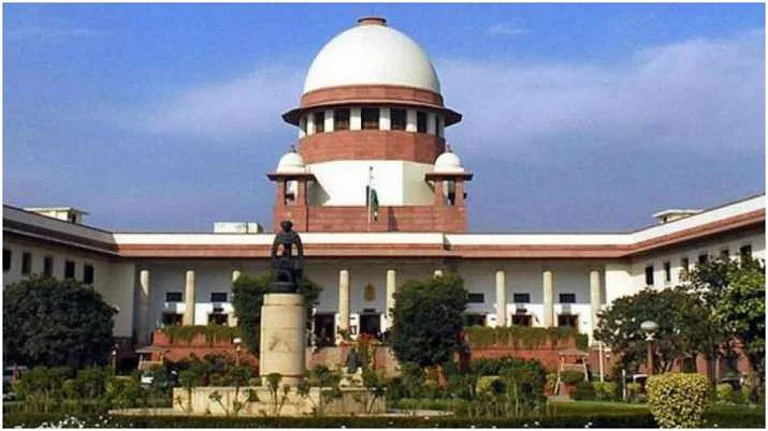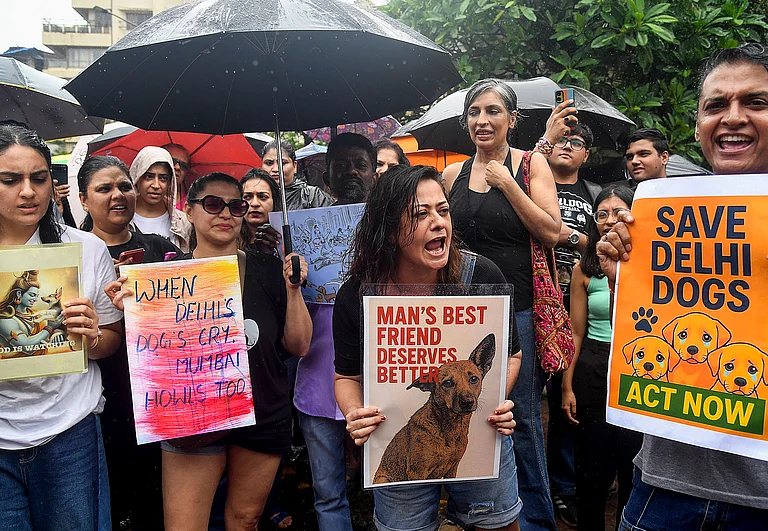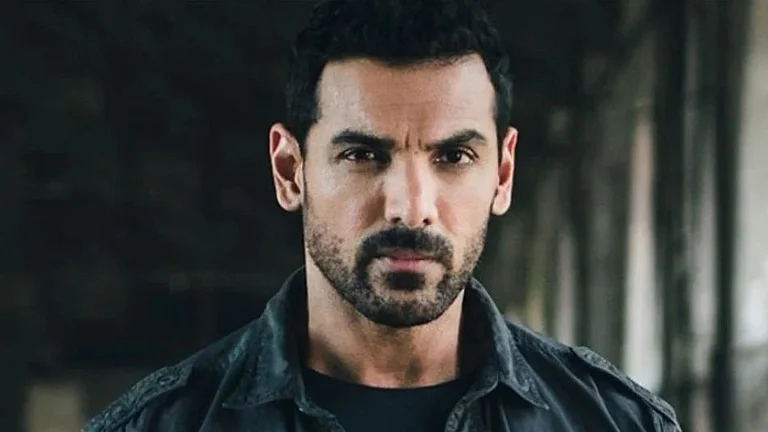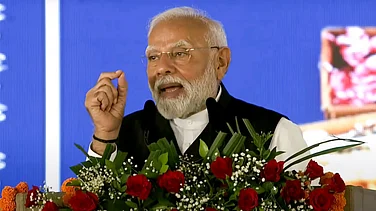
Summary of this article
Supreme Court ordered stray dogs in NCR to be relocated to shelters, sparking nationwide protests.
Rohingya refugees in India face detention, deportation, and lack basic protections under law.
Public outrage and legal attention for dogs far exceed that for human refugees fleeing genocide.
The Supreme Court on August 11, 2025, passed an order in a suo moto petition (meaning a petition where the court itself took up an issue of pressing public concern without there being a petitioner before it) directing all stray dogs in the National Capital Territory, NOIDA, Gurugram and Faridabad to be picked up by the municipal authorities concerned and moved to shelters/pounds to be created by the municipal authorities for housing and care of these dogs. The order was met with a nationwide public outcry and an unprecedented response by the Supreme Court.
As I watch colleagues and friends break down at the treatment being contemplated for their canine friends, witness them join protest marches and vigils against this perceived injustice, and read reports where the order has been variously described as cruel or inhuman, I have only one observation to make. Whatever else this order may be, it is not inhuman. Inhuman would imply either that no human would perpetrate such cruelty, or perhaps that such treatment could never be meted out to a human being in a just society. Both of these are untrue.
Let us just compare the treatment meted out to refugees in our country with what was briefly contemplated, just contemplated, for stray dogs, and we will very quickly realise that stray dogs have far better protection under our laws and in our society than people escaping genocide in their own country and seeking shelter in ours.
To look first at the laws passed by the Parliament and executive authorities, the protections afforded to stray dogs under Rule 11 of the Animal Birth Control Rules, 2023—issued under the Prevention of Cruelty to Animals Act, 1960, which has been repeatedly cited to question the August 11 order of the Supreme Court—include that only such number of dogs under the age of six months will be captured as the Animal Birth Control Centres have the capacity to house. It also mentions that females with puppies will not be captured, dogs from the same family or locality will be housed together, and dogs will be released into the same locality after full recovery post-immunisation and sterilisation. The rules also affix responsibilities for feeding dogs in resident welfare associations of the area.
This is the warped world we live in, where mercy and compassion are selective, and extend to stray dogs before human beings seeking refuge. The message is clear, ‘Dogs are allowed, but refugees are not’
Meanwhile, insofar as refugees are concerned, the central government has repeatedly told courts that India is not signatory to the 1951 Geneva Convention relating to the Status of Refugees and has no obligations towards them, and has denied that certain obligations relating to refugees are now binding obligations under the Universal Declaration of Human Rights, 1948, the International Covenant on Civil and Political Rights, 1966, and customary international law.
Further, the government constantly invokes Section 3 of the Foreigners Act, 1946, in this context, which empowers the central government to pass orders for the arrest, detainment or confinement of foreigners. Under the Foreigners Order, 1948, passed under this Act, various restrictions are imposed on the movement and employment of foreigners in India. Particularly bizarre is Clause 13 of this Order which allows the government to prohibit the entry of undesirable foreigners in any club or restaurant.
This last point appears to be the revenge of a government formed on the back of a freedom movement that took umbrage to signs outside clubs and restaurants saying, ‘Indians and dogs not allowed’. Rules and orders under the Foreigners Act and the Foreign Exchange Management Act prohibit foreigners from buying or leasing residential or commercial properties or undertaking employment, leaving them no avenue to house or feed themselves with dignity. In particular, by an August 8, 2017, order of the Ministry of Home Affairs (MHA), Chief Secretaries of all State governments and Union Territories are directed to take prompt steps to deport illegal Rohingya immigrants expeditiously and without delay.
Let us next look at the response of our Supreme Court to dogs and refugees, respectively. Certain writ petitions have been filed in recent years asking for directions to the central government to provide basic human amenities to members of the Rohingya community who have taken refuge in India to escape persecution in Myanmar. The International Court of Justice in The Gambia versus Myanmar has, by its judgement dated January 23, 2020, recognised that there is sufficient evidence to suggest an ongoing genocide of Rohingyas in Myanmar and that the lives of refugees from that country are in serious danger if they are deported. The petitions refer to this judgement and variously ask for the release of detained Rohingya refugees and a direction to the Union of India not to deport them. In particular, the MHA directive of August 8, 2017, was made the subject matter of challenge.
The Supreme Court, by its order dated April 8, 2021, in Mohammad Salimullah versus Union of India refused to take cognisance of the genocide in progress in Myanmar, saying that “we cannot comment on something happening in another country”. Taking note of the bald and completely unsubstantiated assertion by the central government that the Rohingyas posed a “threat to the internal security of the country”, the apex court refused to grant any interim relief. The petitions were kept pending for final disposal.
On May 15, 2025, the UN Special Rapporteur on the situation of human rights in Myanmar issued a press release citing “credible reports” that 40 Rohingya refugees living in Delhi were blindfolded, flown to the Andaman and Nicobar Islands, transferred to an Indian naval ship, given life jackets and thrown into the sea to swim to the nearest island in Myanmar. This was reported by a large number of national as well as international news agencies, and was also reported to have been confirmed by the National Unity Government of Myanmar.
However, when this was brought to the notice of the Supreme Court by way of a writ petition in Mohammad Ismail versus Union of India, the court said there is “absolutely no material on record to substantiate the vague, evasive, and sweeping averments made in the writ petition” and therefore, it found it “extremely difficult to be swayed by what the petitioners have alleged”. Refusing to “indulge in any roving enquiry” into the alleged incident, the court refused to pass any interim orders and simply placed the petition for hearing with the batch of petitions already pending.
Now compare this to the orders passed by the apex court in relation to stray dogs. In July 2025, a bench of the Supreme Court comprising Justices Pardiwala and Mahadevan took suo moto cognisance of a news report about two incidents in which a four-year-old boy and a six-year-old girl were mauled by stray dogs in Delhi. The court appointed an amicus to assist the court on this ‘burning issue’.
On August 11, the court passed a detailed order noting the submissions of the amicus, including that there had been 25,210 reported incidents of dog bites in 2024 in Delhi alone, with 37,15,713 incidents being reported across the country in that year. The court acknowledged the need for sensitive co-existence and urged dog-lovers to adopt stray dogs and give them a home. It also stated that those interested in the wellbeing of stray dogs could volunteer their time and resources towards the proper functioning of shelters/pounds created for the housing and care of stray dogs and assist the authorities concerned. However, bearing in mind the immediacy of the threat, the court directed civic authorities in the National Capital Region to pick up stray dogs and move them to shelters/pounds to be created for this purpose.
Such was the furore created by this order that two days later, on a mentioning by a lawyer, the Chief Justice of India (CJI) withdrew the matter from the bench that had taken suo moto cognisance of the issue and passed the August 11 order, and listed the matter before a different bench comprising three judges for re-hearing. The powers of the CJI as ‘Master of the Roster’ have been in sharp focus in recent years and have been the subject of much public criticism, even resulting in an impeachment motion being moved against a previous CJI for alleged misuse of the power.
However, no questions were asked nor eyebrows raised at this withdrawal of a pending suo moto petition and placing it before another larger bench by an administrative order of the CJI. The reason given for the request in what was a mere mentioning by a lawyer without even an application to this effect being filed was that there was a conflict between the order of August 11 and a previous order dated May 9, 2024, by a coordinate bench of the Supreme Court in Animal Welfare Board of India versus People for Elimination of Stray Troubles. Let us take a moment to examine this supposed conflict.
Considering a batch of petitions raising issues concerning the need for a framework for street dog population management, rabies eradication and reducing man-dog conflict, the Supreme Court noted that the Animal Birth Control Rules, 2023, had since been issued, and closed the proceedings, leaving it open for each of the parties to pursue their remedies as and when the occasion arose. The court noted in parting that “there cannot be any indiscriminate killing of canines and the authorities have to take action in terms of the mandate and spirit of the prevalent legislation(s) in place”. The court specifically left open the question of whether the mechanism under the new rules was insufficient to address the problem, to be considered by constitutional courts in appropriate proceedings after taking into account all factors and circumstances germane to adjudication.
As such, it is clear that there was no apparent conflict between the earlier order, which only prohibited the indiscriminate killing of stray dogs and left other questions to be decided by courts before which such issues are agitated. In any event, Order VI Rule 2 of the Supreme Court Rules, 2013, provides that where in course of a hearing, a bench of the Supreme Court considers that the matter should be dealt with by a larger bench, it shall refer the matter to the CJI, who will then constitute a bench to hear the case. This is an exercise of a judicial power, and such reference must be by way of a judicial order passed by a bench.
The rules do not contemplate such a power being exercised by the CJI on the administrative side in relation to a pending case, without a judicial order making a reference. Once such a precedent is created, any pending proceeding can be withdrawn by the CJI and referred to a larger bench of his/her choosing without any judicial order of reference. Today, this power may have been carved out by a well-meaning CJI for a cause that has public support, but one shudders at the thought of what some of the past or future occupants of that esteemed chair may have done or will do with such a power, or what cause the majority in this country may espouse tomorrow. Causes come and go, but it is the institution and the procedural correctness of its processes that we must stand for under all circumstances.
Turning lastly to the vastly different responses of the vocal elements in civil society to the issue of Rohingya refugees versus the treatment of stray dogs. There were spontaneous outpouring of protestors onto the streets across the country, with organised protest marches and vigils being reported from Delhi, Chennai, Mumbai, Bengaluru, Patna, Kochi and Hyderabad, to name just a few major cities.
On the other hand, I have searched the internet in vain, but have not come across a single report of a march held or a candle lit in protest over the deportation of Rohingyas, or even over 40 of them being thrown into the Andaman Sea.
According to the order of April 8, 2021, 6,500 Rohingyas were stated by the petitioners to be in jails in Jammu alone. Not a tear appears to have been shed over their living conditions, nor a concern expressed as to whether young children or women with babies have been detained or if families have been housed together, considerations that are assured even to stray dogs under the Animal Birth Control Rules, 2023.
The counsel who mentioned the matter of stray dogs to the CJI on August 13 cited the order of May 9, 2024, in the Animal Welfare Board of India case where it mentioned that “exhibiting compassion to all living beings is the enshrined Constitutional value and mandate”. Ironically, the living beings that this constitutional compassion is meant for does not appear to include human beings escaping genocide in their country and seeking refuge in ours.
This is the warped world we live in, where mercy and compassion are selective, and extend to stray dogs before human beings seeking refuge. The message is clear, ‘Dogs are allowed, but refugees are not’. Unless of course, the refugees are Hindu, Sikh, Jain, Buddhist, Christian or Parsi, basically, anything but Muslim, as the Citizenship Amendment Act prescribes. But that is a discussion for another day.
(Views expressed are personal)
MORE FROM THIS ISSUE
Saiyyad Mohammad Nizamuddin Pasha is a Delhi-based lawyer
This article appeared in Outlook Magazine's 01 September 2025 issue, The Tariff Weapon, as ‘Four Legs Good, Two Legs Bad' — The headline is from George Orwell’s Animal Farm


































